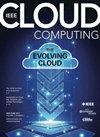MicroLens: A Performance Analysis Framework for Microservices Using Hidden Metrics With BPF
Q1 Computer Science
引用次数: 5
Abstract
Determining the root cause of performance regression for microservices is challenging. The topological cascading performance implications among microservices hide the source of the problem. Additionally, the lack of knowledge about application phases can potentially lead to false-positive critical service detection. Service resource utilization is an imperfect proxy for application performance, potentially leading to false positives. Therefore, in this work, we propose a new performance testing framework that leverages hidden Berkeley Packet Filter (BPF) kernel metrics to locate root causes of performance regression. The framework applies a systematic multi-level approach to analyze microservice performance without intrusive code instrumentation. First, the framework constructs an attributed graph with microservice requests, scores the services to identify the critical paths, and ranks the low-level metrics to highlight the root cause of performance regression. Through judiciously designed experiments, we evaluated the metric collection overhead, showing less than 18% more latency when the application is running across hosts and 9% within the same host. In addition, depending on the application, no overhead is experienced, while the state-of-the-art approach presented up to 1060% more latency. The microservice benchmark evaluation shows that MicroLens can successfully identify the set of root causes and that the causes vary when the application is running in different infrastructures.MicroLens:一个使用BPF隐藏度量的微服务性能分析框架
确定微服务性能退化的根本原因是一项挑战。微服务之间的拓扑级联性能暗示隐藏了问题的根源。此外,缺乏对应用程序阶段的了解可能会导致关键服务检测误报。服务资源利用率是应用程序性能的不完美代理,可能导致误报。因此,在这项工作中,我们提出了一个新的性能测试框架,该框架利用隐藏伯克利包过滤器(BPF)内核指标来定位性能回归的根本原因。该框架采用系统的多级方法来分析微服务的性能,而不需要侵入式代码工具。首先,该框架构建了带有微服务请求的属性图,对服务进行评分以识别关键路径,并对低级指标进行排序以突出性能回归的根本原因。通过精心设计的实验,我们评估了度量收集开销,结果显示,当应用程序跨主机运行时,延迟增加不到18%,在同一主机内延迟增加9%。此外,根据应用程序的不同,没有任何开销,而最先进的方法提供了高达1060%的延迟。微服务基准评估表明,MicroLens可以成功地识别出一组根本原因,并且当应用程序在不同的基础设施中运行时,原因是不同的。
本文章由计算机程序翻译,如有差异,请以英文原文为准。
求助全文
约1分钟内获得全文
求助全文
来源期刊

IEEE Cloud Computing
Computer Science-Computer Networks and Communications
CiteScore
11.20
自引率
0.00%
发文量
0
期刊介绍:
Cessation.
IEEE Cloud Computing is committed to the timely publication of peer-reviewed articles that provide innovative research ideas, applications results, and case studies in all areas of cloud computing. Topics relating to novel theory, algorithms, performance analyses and applications of techniques are covered. More specifically: Cloud software, Cloud security, Trade-offs between privacy and utility of cloud, Cloud in the business environment, Cloud economics, Cloud governance, Migrating to the cloud, Cloud standards, Development tools, Backup and recovery, Interoperability, Applications management, Data analytics, Communications protocols, Mobile cloud, Private clouds, Liability issues for data loss on clouds, Data integration, Big data, Cloud education, Cloud skill sets, Cloud energy consumption, The architecture of cloud computing, Applications in commerce, education, and industry, Infrastructure as a Service (IaaS), Platform as a Service (PaaS), Software as a Service (SaaS), Business Process as a Service (BPaaS)
 求助内容:
求助内容: 应助结果提醒方式:
应助结果提醒方式:


